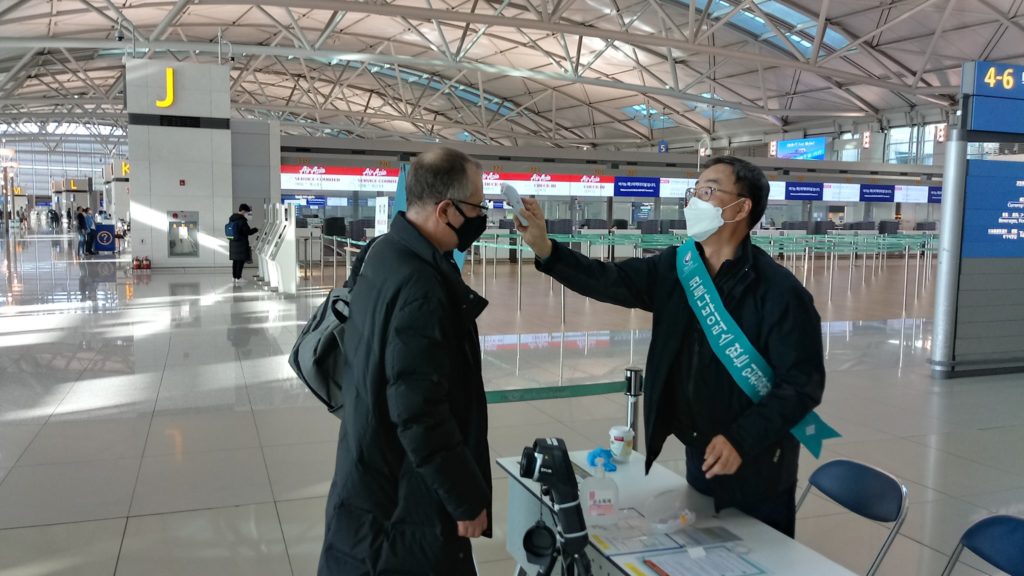The Peninsula
South Korea Demonstrates Adaptability in Privacy Protection Guidelines

This briefing comes from Korea View, a weekly newsletter published by the Korea Economic Institute. Korea View aims to cover developments that reveal trends on the Korean Peninsula but receive little attention in the United States. If you would like to sign up, please find the online form here.
What Happened
- The South Korean government is considering new ways to enhance coronavirus-related privacy protections following increasing public concern over excessive data disclosures.
- This includes measures to remove phone numbers from handwritten visitor logs and an investigation into the functions of thermal imaging cameras with facial recognition.
- In the meantime, as COVID-19 infection clusters continue to grow sporadically, health authorities caution the possibility of another mass outbreak.
Implications: Even as the government continues to prioritize public health amid the ongoing pandemic, its efforts to also protect personal information show that Seoul is attuned to concerns around civil liberties. Despite frequent critiques (particularly from abroad) of its stringent digital surveillance, South Korea demonstrates a willingness to address public opinion and adapt its privacy protection guidelines around contract tracing. Underpinning the decision to revise these rules is the belief among officials that public trust and cooperation are vital for containing COVID-19. As such, policymakers recognize that successfully managing the health crisis is in part contingent upon ensuring a certain degree of personal privacy.
Context: This past summer, South Korea mandated businesses to collect customer information, including names and phone numbers, as part of its effort to prevent the spread of the coronavirus. High-risk facilities like restaurants, cafes, and theaters require visitors to submit either a QRcode based entry log or a handwritten form. Many people have started questioning the effectiveness of the latter and whether it may lead to unauthorized leaks of personal information.
Korea View was edited by Yong Kwon with the help of Sophie Joo, Sonia Kim, and Chris Lee.
Picture from flickr user Jens-Olaf Walter
